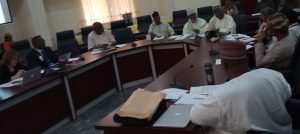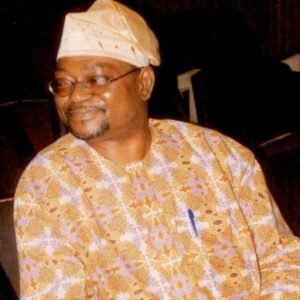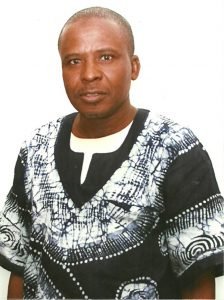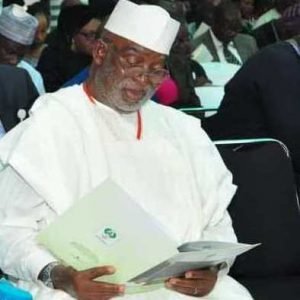Concluding the 7 – Hour Contentious Conversation on Nigerian Universities


attendees at the workshop
While nearly everyone, from the World Bank to Minister of State for Education, the Committee of VCs, ASUU, etc) paint the university system in Nigeria to be something of an apology, no such consensus exist as to where the problem is coming from. No recent forum provided evidence of this polyvalence of views under reference as the University College London research on “The University, Inequality and Public Good” across four African countries – Ghana, Kenya, Nigeria and South Africa. A workshop with South African, UK and Nigerian stakeholders cannot be otherwise. Prof Jibrin Ibrahim who is leading that research in Nigeria put on the table a provocative but contentious argument that the crisis is traceable to the convergence between massification and the political economy of Structural Adjustment Programme, (SAP), aggravated by a cycle of strike actions that has not sufficiently confronted the public finance implications of that strategy. This was the line of argument which provided what discussants and observers contested, endorsed or re-situated.
Prof Adigun Agbaje of the University of Ibadan was keener in locating the overarching context of the crisis of university education. He found it in the disarray that has greeted the power elite in Nigeria. In contrast to the First Republic when the intellectual, military, business and political fragments of the power elite shared a strategic vision, that is no longer the case, he submitted. The cohesiveness he could see in the 1950s and 1960s no longer exist as far as he is concerned. In fact, he contends that the political elite in Nigerian today doesn’t give a damn about the intellectual component of the elite sense of mission, whatever the mission might be or to the extent that there is such a vision anymore. The Second National Development Plan is one of his evidence of such a vision in the days gone by. That doesn’t exist anymore and with it, disarray everywhere else. His second major point is the centrality of governance, down to issue of quality of Vice-Chancellors, the divorce between purely professional academics and people with experience in knowledge production, the gender dimension of university governance, (the near absence of women in key centres of power in the typical Nigerian university, even in some of the oldest of them) and the question of marrying the formal and informal in methodology.
The implication is that priority is where the problem lies, not absolute lack or excess of money. If there is a strategic vision, then the increasing substitution of making life more abundant (public good) with private interest would give way. In other word, seek ye first an elite that is free from a crisis of mission and your university system would be healthy or robust rather than Kwashiorkor looking. But what does elite refer to here? It is not those who manage the universities directly but the power elite – political, military, business, intellectual, traditional and clerical top guys who are supposed to have been the best and the brightest.

Prof Agbaje

Mallam Y Z Ya'u
Mallam Y.Z Y’au, a veteran of ASUU struggle, took over the discussion. He makes a distinction between affordability and availability in terms of access. His argument is that what we have seen in Nigeria is availability but not affordability. Officially, there is no tuition but the system has found ways of bringing in all manner of charges. Whether a particular applicant can afford university education is determined by his or her ability to pay these numerous charges, bear cost of books, take care of feeding, pay for accommodation and so on and so forth.
Second point is how Nigeria has not systematically interrogated employers of labour as to what the graduates are on the ground. He frowned at the notion that university products do not have skills, calling it a wrong notion because skills are dynamic, rather than static. What university students are supposed to have is the capacity for critical thinking such that a graduate of Literature or Philosophy can easily be a Bank Manager without necessarily having read Economics or Business Administration. “What industries require is adaptability so that a critical enough mind can fit anywhere. So, the problem is where the universities cannot give that critical ensemble, not what industries need”, he said. Third point from Mallam was the way productivity is defined in Nigerian academia. It favours quantity rather than quality. The guy with 20 publications is rated higher than the guy with five publications even if all the twenty publications add up to nothing if critically assessed.
Of course, the two discussants attracted comments to the issues they raised. And the exchanges brought light rather than heat. One of such was Professor Mike Kwanashie’s point. Having just left the Vice-Chancellor’s chair at Veritas University, Abuja, one aspect of his intervention was interesting. Private universities are given the same structure as a conventional, Federal Government funded university, he said. The marginal cost is not anything to talk about but not the cost to the student which is, in his words, so high. So, to sustain that ‘right’, the government must pay. That was his own way of saying that the distinction between private and public universities in terms of which one should benefit from TETFund and which should not is not sustainable since the money TETFund disburses is public resources. The parents of those in private universities have a share in the money TETFund disburses.
There was a return to the concept of massification. Prof Ibrahim provided the answer thus: between 2012 and 2017, the number of applications for admission into the universities was 7.8million. Out of this, only 1.5 million got admission, meaning that the 6.3 million who did not get are out there pilling pressure on the system. That is assuming many of those who didn’t get haven’t gone into a career in kidnapping and robbery or such other thing. Dr Oshita Oshita, immediate past Director-General of the FG think tank, the Abuja based Institute for Peace and Conflict Resolution, (IPCR) must thus be right to insist that the discussion must start from education itself as a public good before we can talk about university education. He echoes Prof Agbaje’s point about how the problem is the replacement of the strategic vision with private greed. But is public good the same thing as the common good, someone asked. Should the NUC go ahead with liberalizing its regulation of the universities was another poser raised. While agreeing with NUC ES that Geography at the University of Calabar does not have to be the same as Geography at the University of Maiduguri, the speaker wondered how far such deregulation should go at a time “Nigeria is in need of a graduate of geography who must be a graduate of geography”. Big question!

Prof Nuhu Yaqub, Vice-Chancellor of two different Nigerian universities. He chaired the workshop

Dr Tristan McCowan from UCL's Institute of Education, (IOE) and a member of the research project team
Dr. Chermaine Pereira made a point about institutional culture that the reporter didn’t capture but another lady professor from the University of Abuja drew attention to the female harassment of male academic as a missing dimension of the sexual harassment palaver. Her contention is that bringing unqualified students is at the heart of the matter because it is academically very weak students who are most likely to go out of their way to harass male academics or submit so cheaply to being seduced. Lastly, someone noted the silence of parents on the debate so far, at least in Nigeria. There is a standard gossip that what ASUU is doing is what parents ought to be doing. How might parents who probably didn’t attend a university know that the space is so hollow today as to hold government to commit to its improvement?
The ranking context of the university system globally was brought in. Dr. Tristam McCowan from the Institute of Education, University College London brought up the response of those who argue it is not about whether ranking is acceptable or not but about getting on the bus and changing the direction of the ranking imaginary. How might African or specifically Nigerian universities succeed in changing the direction of the ranking bus with particular reference to criteria such as race, citation, student-teacher ratio that apply to most of the key ranking fortes today –Shanghai, Times Higher Education, QS, etc?
Everything said at the 7-hour long thick conversation could not have been captured. It is unlikely that there has been any such long session on the university system recently except ASUU’s marathons. Even that would not have the diversity of stakeholders at this workshop. And the understandable concern with the issue. That is, understandable in the sense that, in the United Kingdom, for instance, it is debatable if it matters which university one attends. The reading list for most courses are so similar that but for the godfather status of leading authorities and perceived stature/reputation of certain universities, it would not really matter. The structure of the doctoral training and the regulatory process is such that whoever passes through it at any other university is basically adequate to guide students through the conceptual, theoretical and methodological controversies and landmines. That situation does not apply in Nigeria. In Nigeria, the PhD production system is not such that anyone can say that a PhD is a PhD. While some universities enjoy concentration of established scholars, in some others, that is simply not the case across. That is at the core of the quality crisis of the university education in Nigeria. Looking forward to more such critical sessions rather than praise singing sessions that most such gatherings are readily turned into nowadays across Nigeria!
Posted from my blog with SteemPress : http://intervention.ng/14921/